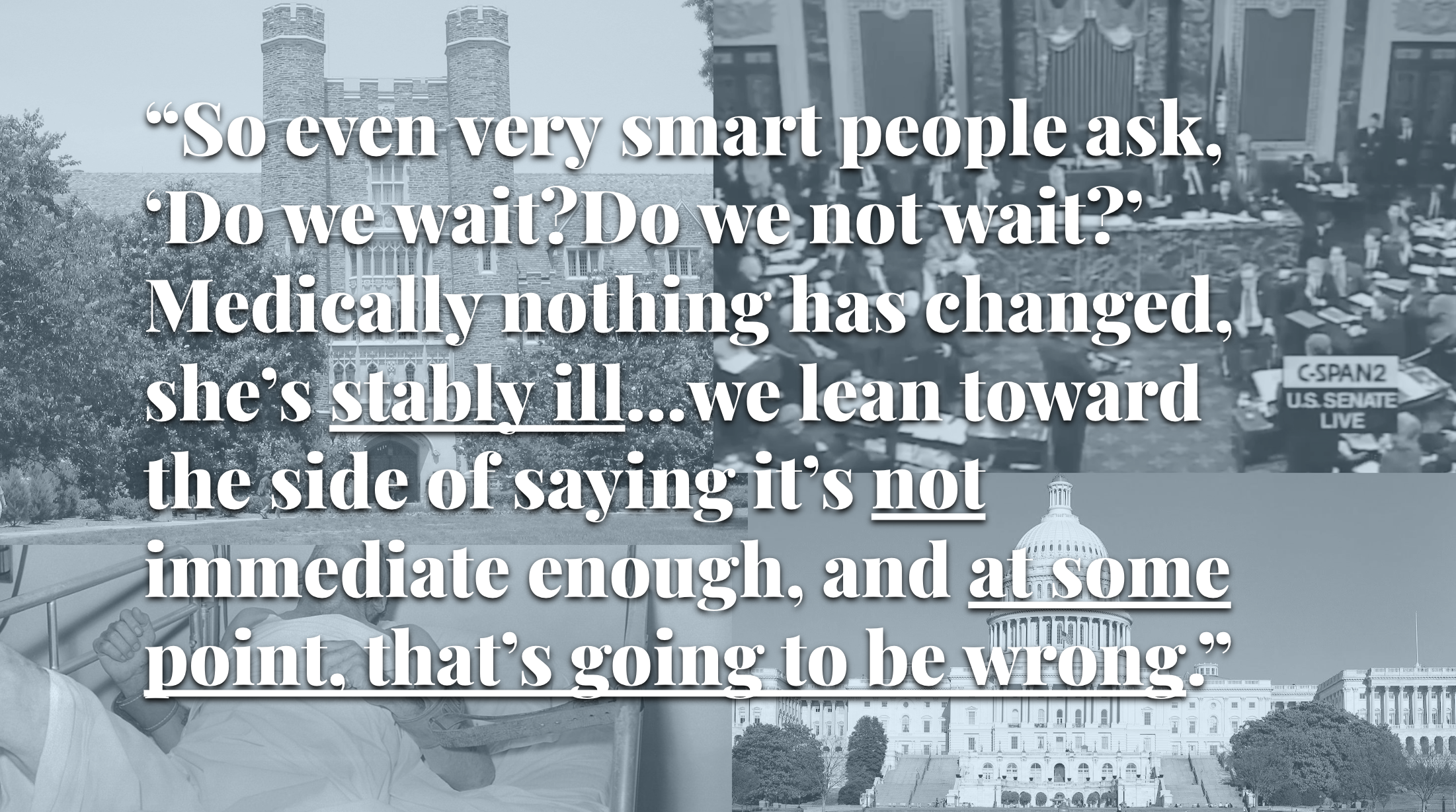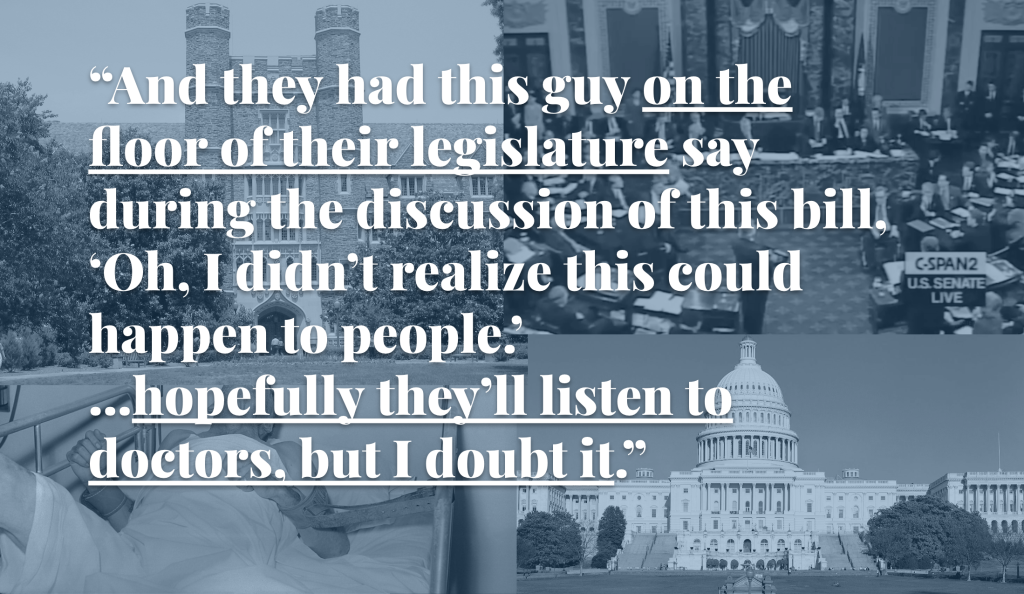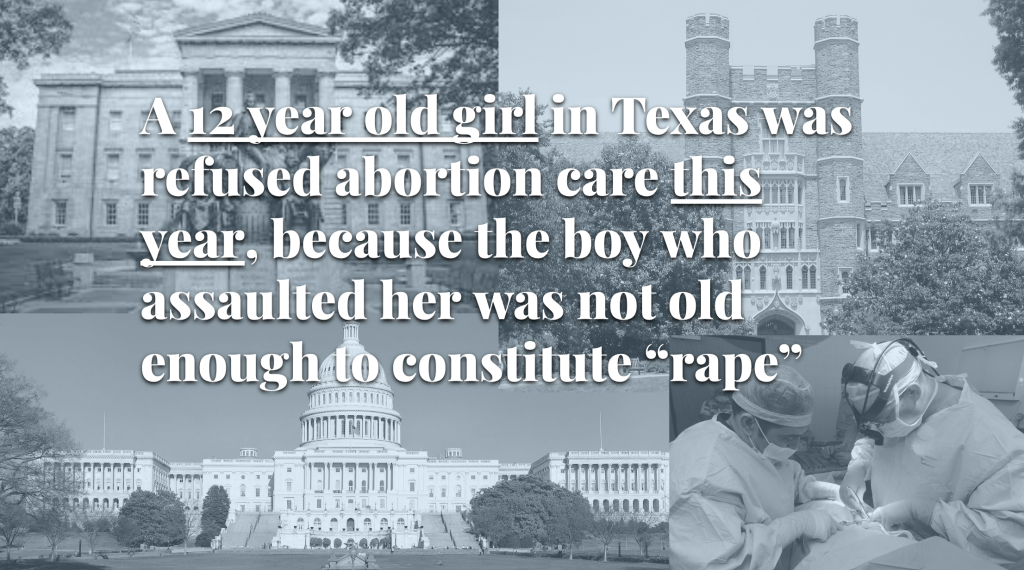
Real Interviews. Real Doctors.
We asked doctors across our network what information they felt the public needed to know for this discourse. These are some of their responses.
Detrimental Standard of Care
-embedded video below, 29:50




Impeding Individual Freedoms
"the assertion that conception=human life is a religious belief, not scientific fact...those religious beliefs should not be imposed on society as a whole, that's another foundational principle of our democracy"

Dangerous Practice of 'Exemption Bans'





What hope do you see for the future?

Other Common Q+A
Is abortion a necessary part of healthcare?
There is a broad consensus in the medical community that abortion is an essential part of reproductive health care. Per a statement released by ACOG in 2019, “Pregnancy imposes significant physiological changes on a person’s body. These changes can exacerbate underlying or preexisting conditions, like renal or cardiac disease, and can severely compromise health or even cause death. There are situations where pregnancy termination in the form of an abortion is the only medical intervention that can preserve a patient’s health or save their life. As physicians, we are focused on protecting the health and lives of the patients for whom we provide care. Without question, abortion can be medically necessary.”
What do current abortion restriction trends mean for broader Medicine?
One clear consequence is how this will affect the education of young doctors. If doctors training in more restrictive states are not able to learn how to treat all aspects of reproductive care, it will create knowledge deserts that could raise maternal mortality rates even further.
There are also concerns being raised about what this might mean for people who can get pregnant and their ability to receive teratogenic medications–those that can cause miscarriage in the process of treating the disease–even if they are not pregnant at the time. Just the possibility that they could potentially become pregnant, and miscarry because of the medication, may lead doctors to avoid treatment, particularly in areas that criminalize miscarriage/abortion.
How should Abortion Care be regulated?
According to a physician in a leadership position, “because one cannot possibly list all the exceptions to an abortion ban that will be necessary to save a person’s life, it is never a good idea to have lawmakers limit patients’ access to evidence-based healthcare.”
Is abortion safe?
Pregnancy is far less safe than abortion care. On average, 330 pregnant people out of every 100,000 die during pregnancy and childbirth, compared to 6 pregnant people out of every 100,000 die from abortion care.
How does abortion care access impact minoritized Communities?
Black women, Indigenous women, and women from other minoritized communities are at greater risk without access to comprehensive reproductive care access, including access to abortion care. In their own words, read more at We Testify
How common is abortion?
Abortion is very common. One in four Americans who can get pregnant will receive abortion care in their lifetime.
(This is more than double the rate of Americans getting their tonsils removed).